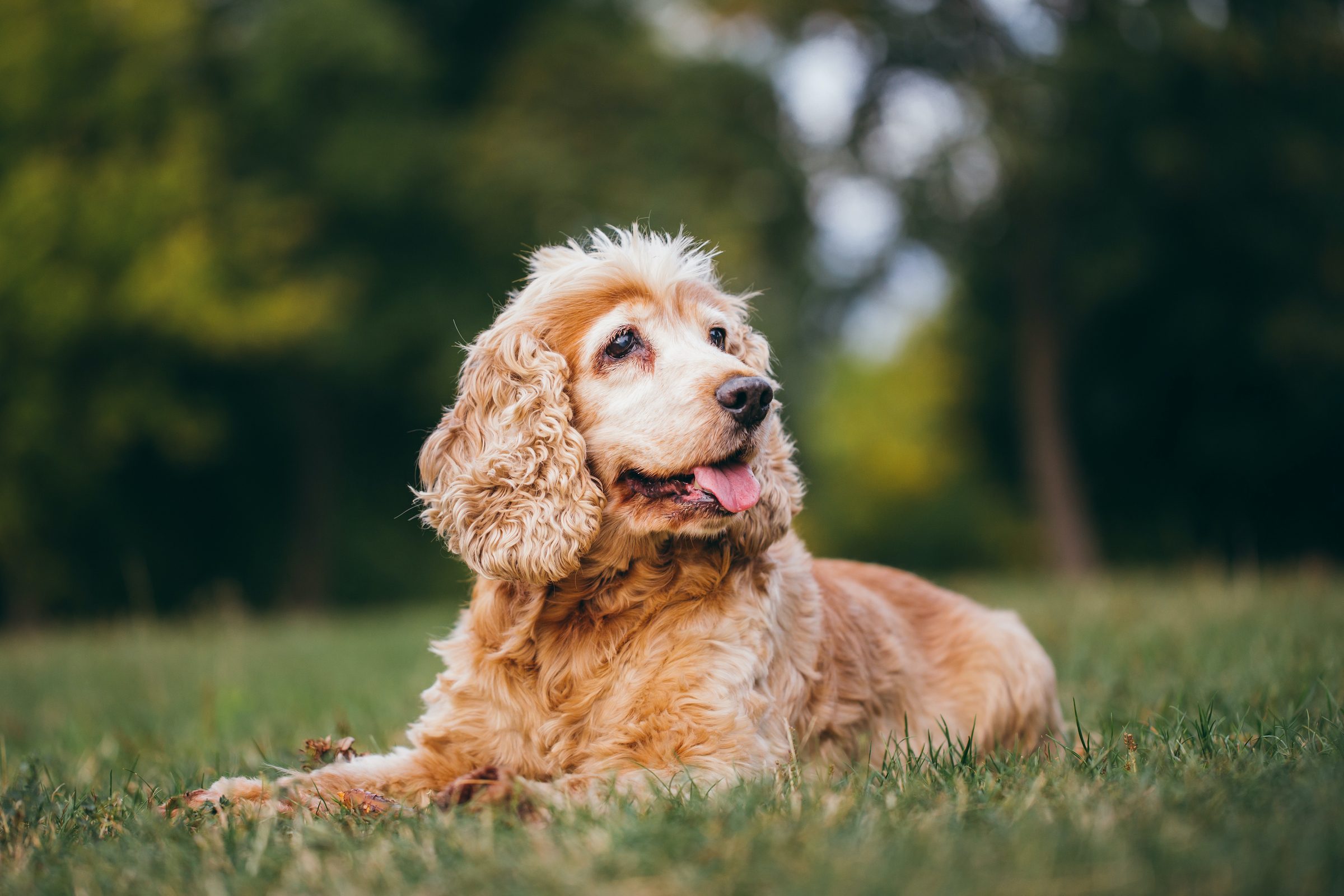As pets age, you’re bound to encounter some new experiences, including evolving medical needs like incontinence and dementia. Although one may be familiar with the way dementia works in people, it’s not as straightforward when you can’t communicate with your pet in words. Caring for a dog with dementia might seem overwhelming, but both you and your pet are more than capable of adapting.
Of course, your best resource for dementia-related needs is your dog’s trusted veterinarian. They’ll have the most appropriate guidance based on your dog’s specific experiences, which will make your work much easier. But until then, here’s what you need to know about taking care of a dog with dementia.
What is dog dementia?
Dog dementia — also known as canine cognitive dysfunction (CCD) — is a degenerative neurological disorder that affects many geriatric pets, including dogs. It can cause confusion, anxiety, and a shift in your pup’s circadian rhythm (what helps her sleep at night and stay awake during daylight hours). These are many of the same symptoms seen in people with dementia.
Here’s the difference — one that often catches owners by surprise: CCD is often fast acting. Veterinarian Cameron Fay explains to ABC Australia, “With dogs and cats, everything is in fast-forward. You’ve got a puppy, then an adult dog … a senior, and finally the geriatric. And that happens in a short space of time. Sometimes it’s a matter of months [where] you can see that mental decline in them.”

Symptoms of canine dementia
Hill’s Pet provides a helpful list of symptoms and signs to look out for as your dog ages: DISH.
- Disorientation. This can include wandering, pacing, becoming lost in familiar places, getting stuck in or around furniture, and not responding to name or commands.
- Interaction. This can include unfamiliarity with people and animals they know, less interested in interaction, and no longer greeting family members.
- Sleep/Activity. This can include more frequent sleep, sleeping during the daytime, reduced activity, lack of interest in play, barking or howling at night, and increased confusion in the late afternoon and evening (sundowning).
- House training. This can include accidents in inappropriate places, or wanting to go outside quickly after coming inside.
Some pet parents like to add another A to the end of the acronym to symbolize increased anxiety and changes in daily activities (via Hill’s Pet).
Is dementia stressful for dogs?
Unfortunately, canine cognitive dysfunction can be highly stressful for both pets and owners. It doesn’t help that many of the symptoms are misattributed to normal, age-related decline, which then results in a lack of proper care (unknowingly, of course).
Imagine how you might feel if you were suddenly stuck in an unfamiliar place with no clue of how to get out, where to go, or what to do — this can be the reality for pets with severe forms of dementia. For others, CCD might seem more like inconvenient “senior moments” or anywhere in between.

Caring for a dog with dementia
Ultimately, there is no cure for dementia in dogs. However, there are many options you can take to keep your pup happy and healthy, though your vet can advise you which is your best route.
- A drug called selegiline may help ease the progression of the symptoms, while anti-anxiety medications can help pups who are already in distress.
- To keep your senior fur baby as stress-free as possible, try to stick to a daily schedule as much as you can. Life happens sometimes, so it’s okay if you’re not perfect, but this will help ensure all your dog’s needs are met. This can reduce anxiety greatly — for both of you!
- Possibly most importantly, make sure your dog has plenty of mental stimulation. Puzzle toys and treat-releasing Kongs are great for this. Nothing can replace interaction, though, so make sure to have some light playtime and training if and when you can. A little can go a long way!
- Even if you can’t go for long walks anymore, letting your pup wander and take in the smells of the neighborhood can be great for her mental and physical health. It will also help make the bathroom accessible for your pet, whether through a potty pad or doggy door.
A diagnosis of CCD is by no means an end-of-life sentence, especially with top-notch care like yours, but you also should never dismiss any of your dog’s symptoms or sudden behavior changes. By keeping a close eye and making some mindful changes, you can keep your dog feeling confident, calm, and like herself for much longer. It’s the least you would do for your best friend, after all.



